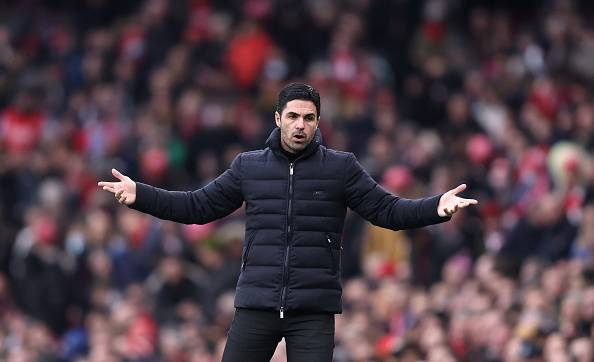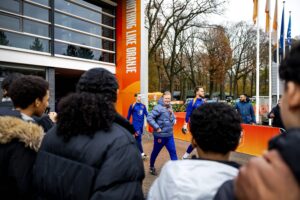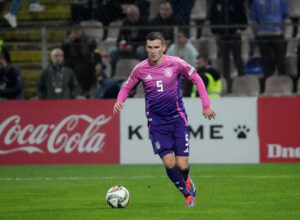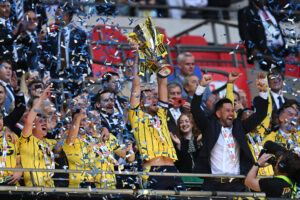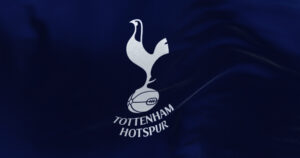Mikel Arteta, Edu and the Kroenkes are all relatively new to their positions. Arteta and Edu, Arsenal’s manager and director of football respectively, are doing their jobs for the first time, and the Kroenkes’ background is in the NFL/American football. Consequently, none of them can be considered to be experts or even experienced in how to run a football club. Nevertheless, after the January transfer window closed at the start of this week, it appears that their lack of knowledge of the beautiful game has been laid completely bare. So, here are five pointers for them, to attempt to bring them up to speed on some things about football that they really should know.
Arsenal’s January Transfer Window in Review
You’re Supposed to Strengthen the Team in a Transfer Window, Not Weaken It
If Arsenal had enjoyed a stellar January, there might have been a reason for the club not to be more active (or, indeed, active at all) in the January transfer window. But of course Arsenal enjoyed a wretched January. The “highlight” was the last-minute defeat against Manchester City on new year’s day, when the team produced probably the finest performance of Arteta’s time in charge at The Emirates but still lost, to set the utterly unwanted record of losing to the same team for 10 league matches in a row for the first time in the entire history of Arsenal Football Club.
Of course, it only got worse from there, as the Gunners crashed out of both domestic cups. They produced a supine performance against Nottingham Forest in the FA Cup, before producing a superb defensive performance at Anfield in the first leg of the Carabao Cup semi-final that was ultimately in vain as they lost the second leg to Liverpool 2-0. Then, to top it all off, they blew the chance to return to the top four of the Premier League by failing to beat bottom side Burnley at home, making it four games in succession without scoring a single goal.
As a result, it was imperative that the Gunners tried to strengthen their squad in the transfer window, but instead they weakened it. Mikel Arteta may have fallen out with Pierre-Emerick Aubameyang and wanted him out of the club, but his failure to replace him was at best borderline reckless and at worst almost criminally irresponsible.
Arteta is left with a central “strike-force” of Alexandre Lacazette and Eddie Nketiah, who have not only failed to score many goals this season but who are both out of contract in the summer. The solution may be to play Gabriel Martinelli centrally, but if the brilliant Brazilian gets injured (and his record on that front is poor), Arsenal will be trying to chase Champions League qualification without the strikers to do it. And that’s without even mentioning the fact that Ainsley Maitland-Niles was sent on loan to Roma at a time when the team were crying out for central midfielders. In January, Arsenal should have been building from a position of strength; instead, from a position of weakness, they undermined themselves even further.
You’re Allowed to Ask for Transfer Fees for Outgoing Players
The background of the Kroenke family, the owners of Arsenal football, is in US sports, principally the NFL, where there is no such thing as a transfer fee; instead, players are traded with other teams or simply released when their contracts are up. However, the way that the Kroenkes have overseen Arsenal’s transfer activity since taking over the club more than a decade ago suggests that they believe transfer fees do not exist in European football either. That is not the case.
Even if you makes allowances for the Aubameyang situation, when Arteta was obviously so desperate to ship his former skipper out of the club that he was prepared to let him go to Barcelona for nothing, that does not explain all the other players who have been allowed to leave Arsenal for nothing over the last decade, including Özil, Ramsey and Sanchez. If you include Aubameyang in that list, then by a conservative estimate Arsenal have allowed nearly £200 million worth of players to leave the club for nothing. No wonder Arsenal cannot compete with Manchester City and Chelsea, two infinitely better run clubs. What little money they do have they insist on squandering.
You Can’t Keep Falling Out With Players
Currently, there is the spine of a good Arsenal team playing for other clubs. By all accounts, William Saliba, the young French centre-back signed nearly three years ago, is excelling at Marseille; Mattéo Guendouzi is also doing well at the French club, and his erstwhile partner in the centre of Arsenal’s midfield, Lucas Torreira, is on loan at Fiorentina; and of course Aubameyang, the man who Arteta and Arsenal gave away for nothing, was immediately signed by Barcelona and given a buy-out fee of £100 million. Every one of those players would at least merit inclusion in Arsenal’s squad, if not the first team, and yet Arsenal are paying them to play for other teams or, as in Aubameyang’s case, simply giving them away.
Of course, what they also all have in common is that they seem to have fallen out, pretty much permanently, with Mikel Arteta. To paraphrase Oscar Wilde and the most famous and universally applicable quotation ever, to fall out with one key player might be considered unfortunate; to fall out with four is evidence that the players themselves may not be the main problem. It is obviously commendable that Arteta has sought to restore discipline and self-respect to an Arsenal team and squad that lacked both by the end of the Wenger/Emery reigns, but he really has to ask himself whether he can do better on the man-management front. And at the very least, if he is going to fall out with players and let them go, he has to insist that the club receive transfer fees for them so that he can use the money to replace them.
Midfield is Probably the Most Important Part of Any Team
Alan Hansen, one of the few truly great players who became an equally distinguished analyst or commentator, famously said that most football games are won in midfield. If Hansen is right, then it’s no wonder that Arsenal have struggled for so long, because they have not had a central midfield, or even a single central midfielder, worthy of the name since Patrick Vieira was sold to Juventus nearly 20 years ago. Cesc Fabregas flattered to deceive for a while before flying home to Barcelona, but since his departure the only skilful, passing Arsenal midfielder who could knit a team together, effortlessly linking defence and attack, was Santi Cazorla, who was actually a converted winger, and he left the club nearly four years ago.
Arteta and Edu must be given their due – they have improved Arsenal in every other area (goalkeeper, defence and attack) over the past year, with astute signings such as Ramsdale, Tomiyasu and Ødegaard. But they have still not significantly improved Arsenal’s central midfield; indeed, with the loaning-out of Maitland-Niles, who is surely a better prospect (both in the short and the long term) than Mohamed Elneny, they have arguably weakened it even further. And of course the problem has only been exacerbated by the prolonged absences of both Thomas Partey and Granit Xhaka, through participation in the African Cup of Nations (in Partey’s case) and rank indiscipline (in both cases). As a result, Arteta has reverted to making the worst tactical and selectorial mistake of his managerial career by continuing to try and convert either, or both, Ødegaard and Emile Smith Rowe into central midfielders when they are obviously both attacking midfielders or No.10s.
What makes the situation even more absurd is that both Arteta and Edu were central midfielders themselves, including for Arsenal. Neither of them would merit inclusion in any list of the best Arsenal midfielders of the last 20 or so years – a list headed by Vieira, Gilberto Silva and Emmanuel Petit – but they were still a class above anything that Arsenal can put out today. As a result, their combined failure to identify central midfielders, or even just one central midfielder, who would improve Arsenal is staggering.
A Third Successive Eighth-Placed Finish (Or Worse) is Unacceptable
Finally, we come to the lesson, or “learning”, that Arsenal’s manager, director of football and owners need to absorb most. Arsenal have improved this season, especially after their awful start, but the team’s on-field woes in January and the abysmal business of the transfer window have raised genuine fears that that improvement might be about to come to an end. The first acid test of that will be the rearranged away game at Wolves next Thursday, when Arteta’s Arsenal will face, among other things, a far superior central midfield pairing of João Moutinho and Ruben Neves.
In the two seasons (to be fair, actually one and a half) that Arteta has been in charge so far, Arsenal have finished eighth in the Premier League twice. The first time round, that abject failure was masked by the FA Cup win, which the now-departed Aubameyang was largely responsible for; last season, excuses were made and largely accepted because of the continuing disruption caused by the pandemic. This season, however, there are no such excuses, or at least they will not be tolerated by the majority of Arsenal fans.
For all that they might accept that Arsenal have largely been overtaken by the new money of Manchester City or Chelsea, who have joined the two traditional giants of English football (Manchester United and Liverpool) to form a new “natural top four”, they will not again accept finishing behind Spurs and West Ham, two London rivals with far fewer financial resources and infinitely less glorious histories. In failing to react to a woeful January by strengthening the squad in the transfer window, Arteta and Edu have both put their heads on the chopping block. It remains to be seen whether they can remove them.
Main Photo
Embed from Getty Images


